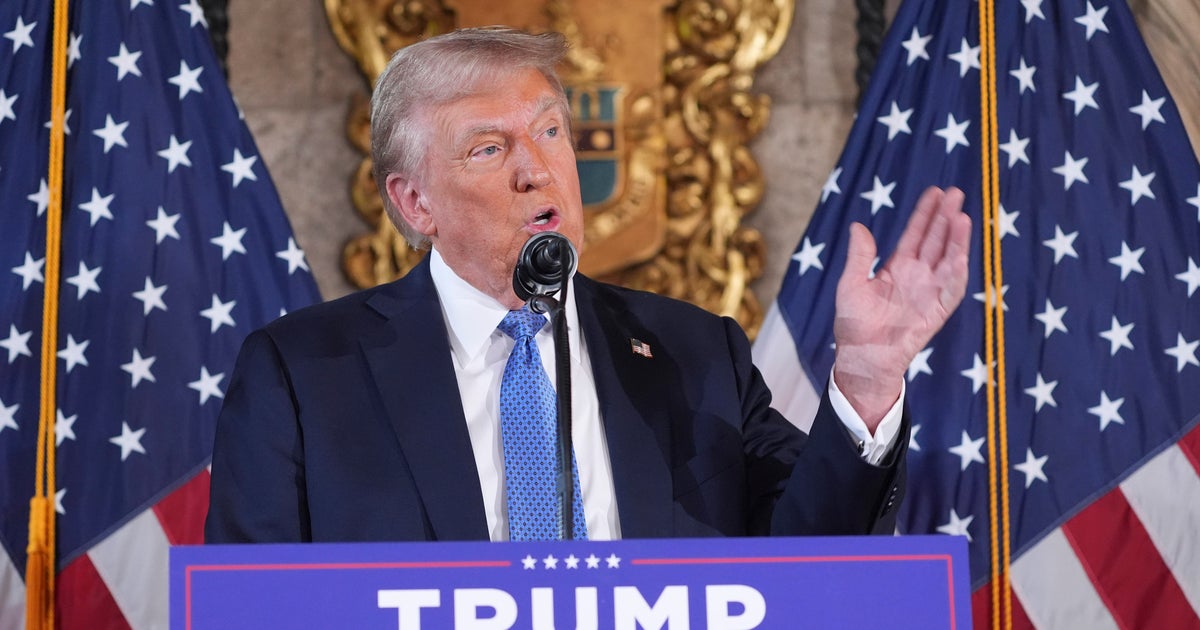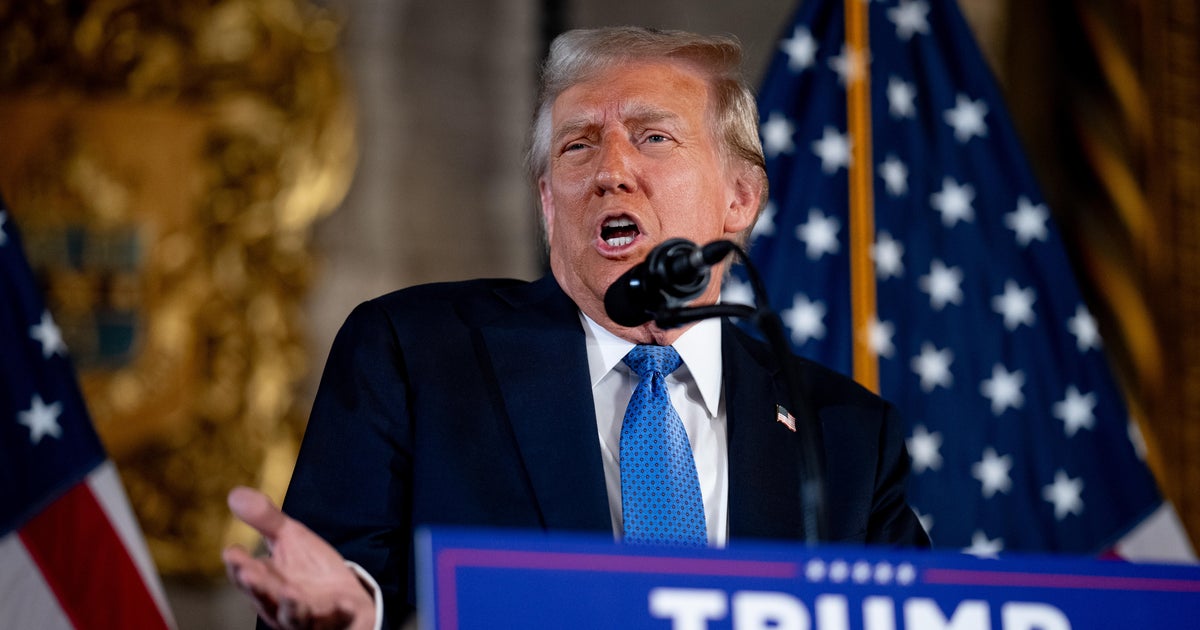President Trump speaks at March for Life anti-abortion rally
President Trump on Friday became the first sitting president to speak at the annual March for Life rally — a visible show of support for those who want to restrict abortion access. The event comes six weeks before Supreme Court arguments in one of the most important abortion cases since Roe v. Wade, which legalized abortion nationwide.
Mr. Trump has in the past called himself "very pro-choice," but since becoming president has identified as "pro-life" and pushed policies that support efforts to limit abortion.
"From the appointment of pro-life judges and federal workers, to cutting taxpayer funding for abortions here and abroad, to calling for an end to late-term abortions, President Trump and his administration have been consistent champions for life and their support for the March for Life has been unwavering," said Jeanne Mancini, president of March for Life, in a statement announcing the appearance.
On the campaign trail in March 2016, Mr. Trump even said that "there has to be some form of punishment" for women who receive abortions if the procedure were to become illegal, an idea he hasn't revisited since winning the election, after the idea was criticized even by conservatives.
Mr. Trump announced he'd be attending the rally on Wednesday, the 47th anniversary of the Roe v. Wade decision.
Until this week, the highest-ranking White House official to attend March for Life was Vice President Mike Pence, who has gone every year since 2017. Other presidents have delivered remarks over the phone, but never attended in person.
Friday's event will begin with a rally at noon at the National Mall, where a group of speakers, including Mr. Trump, will address the crowd. Attendees will then march down Constitution Avenue and end at the steps of the Supreme Court.
Abortion and access to the procedure have emerged as a major issue in the 2020 election. Planned Parenthood's political arm announced it plans to spend a record $45 million to elect politicians who support abortion access, while the Susan B. Anthony List, an anti-abortion advocacy group, plans to spend $52 million, the most it has ever spent on a single election.
The state lawmaker from Louisiana who wrote the bill at the center of the upcoming Supreme Court case will also be speaking. Representative Katrina Jackson introduced the state's "Unsafe Abortion Protection Act," a 2014 law not currently in effect that requires abortion-providing doctors to have admitting privileges at a nearby hospital. If the Supreme Court allows the law to go into effect, abortion access could be entirely eliminated in Louisiana.
In an exclusive interview with CBS News, Planned Parenthood's acting president Alexis McGill Johnson said she was worried about the upcoming case and warned that other states may follow.
"I think what it will do is actually emboldened state legislatures across the country to enact these similar bans and TRAP (targeted regulation of abortion providers) laws around abortion providers," Johnson said on Wednesday in Davos, Switzerland, noting that the impact would "effectively gut Roe."
In a tweet Wednesday evening, Johnson addressed Mr. Trump's attendance at March for Life, writing, "further confirmation that the sitting President of the United States is determined to end the American people's ability to access abortion."
New data released on Wednesday by the Kaiser Family Foundation found that the majority of Americans supported abortion access. According to the report, 79% of those surveyed said they do not want to see Roe v. Wade overturned and 63% said they personally knew someone who had an abortion.
"There's a vocal minority who control the levers of power and our work is to really shift those levers of power in 2020 to ensure that the will of the people actually remains the law of land," Johnson said.
Support for abortion, however, depends on the trimester. A 2018 Gallup poll found six in 10 U.S. adults think abortion should generally be legal in the first three months of pregnancy. That support drops to 28% for abortions in the second trimester and 13% in the third trimester.



